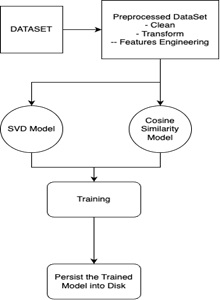Sherpa: Implementing a Hybrid Recommendation System for Next-Gen Tourist Experience
Keywords:
Artificial Intelligence, Digital Tourism, Collaborative Filtering, Content-Based Filtering, Hybrid Recommender System, Singular Value Decomposition, Cosine Similarity Matrix.Abstract
In the digital era, Sherpa revolutionizes personalized tourism with an AI-driven recommendation system, fostering meaningful connections between travelers and local guides. This study explores Sherpa's integration of collaborative and content-based filtering—specifically, singular value decomposition (SVD) and cosine similarity—to tailor travel experiences uniquely. Our methodology includes a detailed examination of Sherpa's algorithm and its implementation within a cross-platform, MERN Stack-powered backend. We assess the system's efficacy in aligning recommendations with individual user preferences, based on quantitative user feedback and engagement metrics. Initial results demonstrate a significant improvement in personalized experience satisfaction. The paper concludes that Sherpa's innovative approach not only enhances the quality of travel recommendations but also sets a new standard for interactive and adaptive tourism platforms. Through continuous algorithmic refinement, Sherpa is positioned to lead a transformative shift in how travelers explore new destinations, offering not just journeys, but transformative experiences.
References
S. Zhang, W. Wang, J. Ford, and F. Makedon, “Learning from incomplete ratings using non-negative matrix factorization,” Proceedings, vol. 2006, pp. 549–553, 2006, doi: 10.1137/1.9781611972764.58.
D. D. Lee and H. S. Seung, “Algorithms for Non-negative Matrix Factorization”.
R. Salakhutdinov and A. Mnih, “Probabilistic Matrix Factorization”.
Y. Koren, R. Bell, and C. Volinsky, “Matrix factorization techniques for recommender systems,” Computer (Long. Beach. Calif)., vol. 42, no. 8, pp. 30–37, 2009, doi: 10.1109/MC.2009.263.
W. Zhang, G. Ding, L. Chen, and C. Li, “Augmenting Chinese online video recommendations by using virtual ratings predicted by review sentiment classification,” Proc. - IEEE Int. Conf. Data Mining, ICDM, pp. 1143–1150, 2010, doi: 10.1109/ICDMW.2010.27.
Q. Gu, J. Zhou, and C. Ding, “Collaborative filtering: Weighted nonnegative matrix factorization incorporating user and item graphs,” Proceedings, pp. 199–210, 2010, doi: 10.1137/1.9781611972801.18.
H. Wen, G. Ding, C. Liu, and J. Wang, “Matrix Factorization Meets Cosine Similarity: Addressing Sparsity Problem in Collaborative Filtering Recommender System,” Lect. Notes Comput. Sci. (including Subser. Lect. Notes Artif. Intell. Lect. Notes Bioinformatics), vol. 8709 LNCS, pp. 306–317, 2014, doi: 10.1007/978-3-319-11116-2_27.
S. Zhang, W. Wang, J. Ford, F. Makedon, and J. Pearlman, “Using singular value decomposition approximation for collaborative filtering,” Proc. - Seventh IEEE Int. Conf. E-Commerce Technol. CEC 2005, vol. 2005, pp. 257–265, 2005, doi: 10.1109/ICECT.2005.102.
“TripAdvisor Dataset.” Accessed: May 05, 2024. [Online]. Available: https://www.researchgate.net/publication/308968574_TripAdvisor_Dataset

Downloads
Published
How to Cite
Issue
Section
License
Copyright (c) 2024 50SEA

This work is licensed under a Creative Commons Attribution 4.0 International License.




















